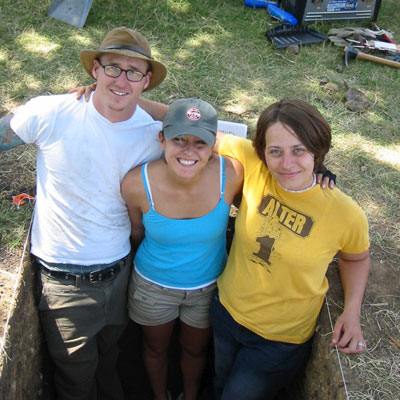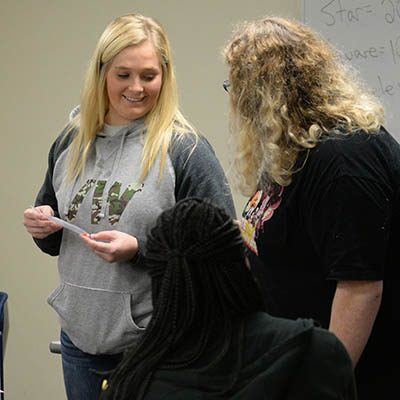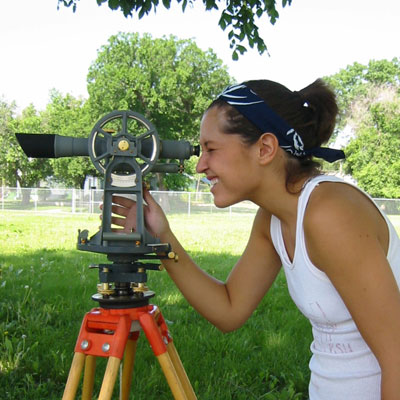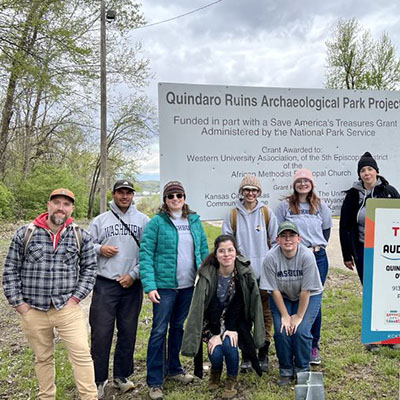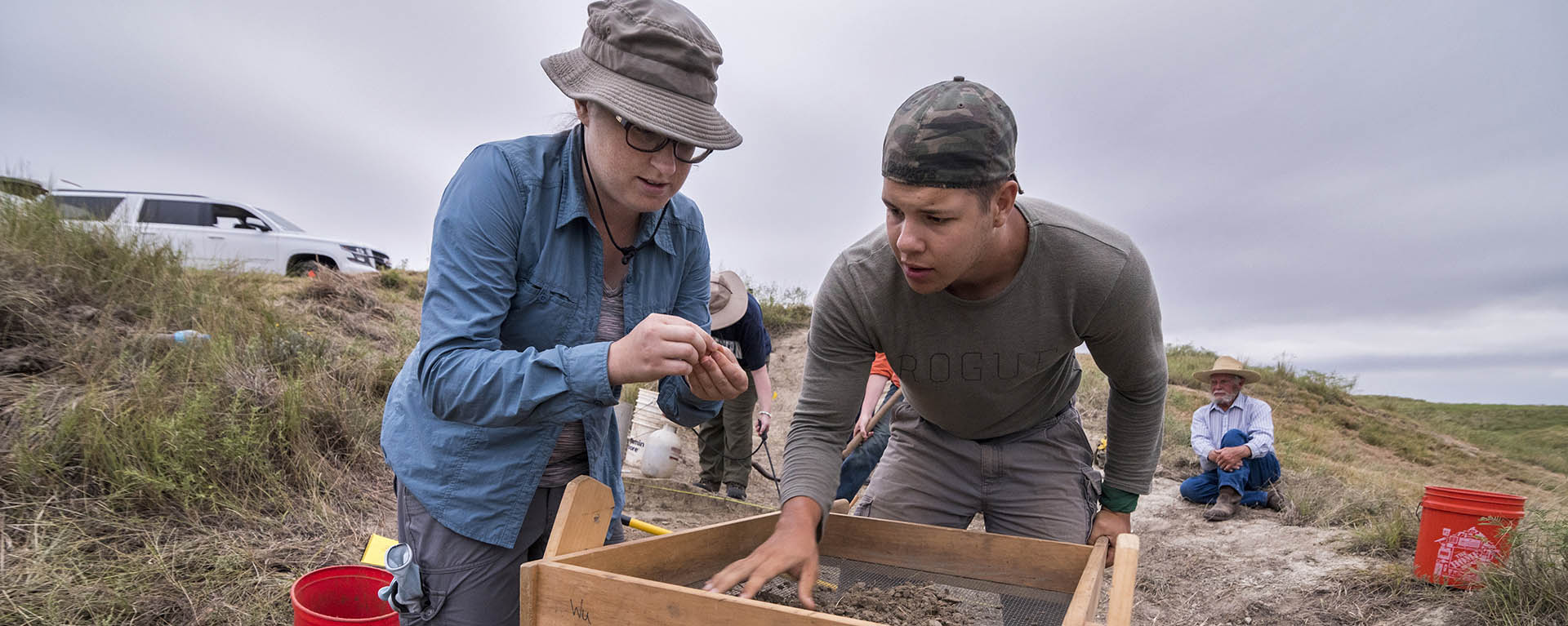
Why study anthropology at Washburn?
Anthropology offers you a unique lens to explore what it means to be human. Through engaging coursework, hands-on learning opportunities, and dedicated faculty, you'll gain the skills to critically analyze culture, society and history while applying that knowledge to contemporary challenges.
Our program emphasizes community-engaged learning, allowing you to work on meaningful projects in partnership with local organizations. Whether you're interested in archaeology, biological anthropology, cultural anthropology or linguistic anthropology, you'll graduate with real-world experience and a deeper understanding of diverse perspectives. Start your journey here and become equipped to make an impact—locally and globally.
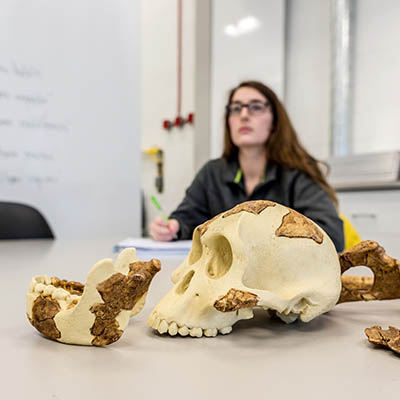
What is anthropology?
Anthropologists try to answer the fundamental question "What makes us human?" through a global and holistic approach. American anthropology includes four subfields:
- Archaeology - the study of human past
- Biological Anthropology - the study of human evolution and variation
- Cultural Anthropology - the study of human cultures
- Linguistic Anthropology - the study of human languages
Washburn's Forensic Anthropology concentration uses what we know about human biology, past cultures and archaeology to help answer questions for medical and legal matters.
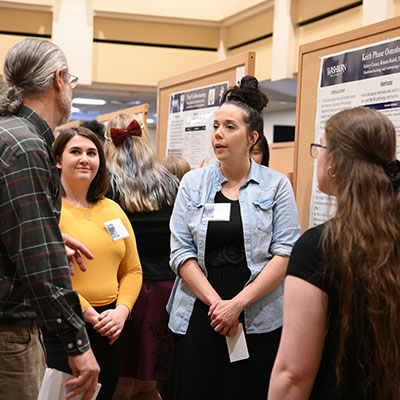
What sets anthropology at Washburn apart?
- Hands-on and community-engaged learning: Our program emphasizes hands-on learning opportunities where anthropology students can apply their knowledge in real-world contexts fostering skills that extend beyond the classroom. Explore our course offerings!
- Interdisciplinary approach: Our program integrates anthropology with other disciplines such as geography, community studies and museum studies, providing a broad understanding of the fields' applications.
- Small class sizes and faculty interaction: Students benefit from personalized instruction and close mentorship from faculty fostering deeper engagement with the material and their professional development.
- Local and global perspectives: Our program balances local opportunities with global perspectives, encouraging students to consider anthropological issues on a broad scale.
- Scholarship Opportunities: To apply for the SOAN Department Scholarship, students complete a short application form sent out annually by the SOAN department chair during the spring semester.
- Find your people on campus with the Sociology/Anthropology Club or get involved with established community partners.
Admissions scholarships
Washburn University offers generous scholarships based on your interests, career aspirations, community service and academic success.Department scholarships
The Sociology and Anthropology Department may award scholarships to students actively pursuing a sociology or anthropology degree.
Requirements:
- Be a declared major in sociology or anthropology
- Have an overall and program GPA of 3.0 or above
- Fill out the scholarship application
- Admissions scholarshipsAdmissions scholarships
- Department scholarships
Tuition and fees
Courses in this program are offered at the Traditional Undergraduate rate.Financial aid
Washburn University offers generous undergraduate financial aid, including scholarships and grants.Tuition waivers
If you don’t currently live in Kansas, learn about our Tuition Waiver programs that may qualify you for in-state tuition.- Tuition and feesTuition and fees
- Financial aidFinancial aid
- Tuition waiversTuition waivers
4-Year plan
A Bachelor of Arts in Anthropology can be completed in 4 years. You'll also have the opportunity to participate in field school, research and/or an internship.
Meet alumna Sabrina Jones
“I do all the artifact processing (washing, identification/analysis, curation prep, data entry, etc.) for all phase I-III archaeological surveys conducted by the company for Section 106 (of the National Historic Preservation Act) and other compliance related requirements. We do a ton of work with the NPS (National Park Service) and the Department of Defense, as well as lots of smaller entities across the country. I literally use what I learned at Washburn every single day in my job!”
- Sabrina Jones, ba anthropology, research analyst/lab technician at a Kansas City engineering firm
Set for success
Qualities for success
Curious
Interested in diversity and cultures
Interdisciplinary
Open to new experiences and cultures
Student/faculty ratio
20:1
Specialized experiences
Kansas State Historical Society partnership
Archeological Field School
Cultural Anthropology is happening now – real-world opportunities
Study Abroad experiences led by faculty
Program cost
Courses in this program are offered at the Traditional Undergraduate rate. Students in this program are eligible for scholarships and financial aid.
GET IN TOUCH WITH Department of Sociology & Anthropology
Sociology & Anthropology Department
West Hall, Room 100
1700 SW College Ave.
Topeka, KS 66621
Connect
785.670.1608
sociology-anthropology@washburn.edu
![]()


